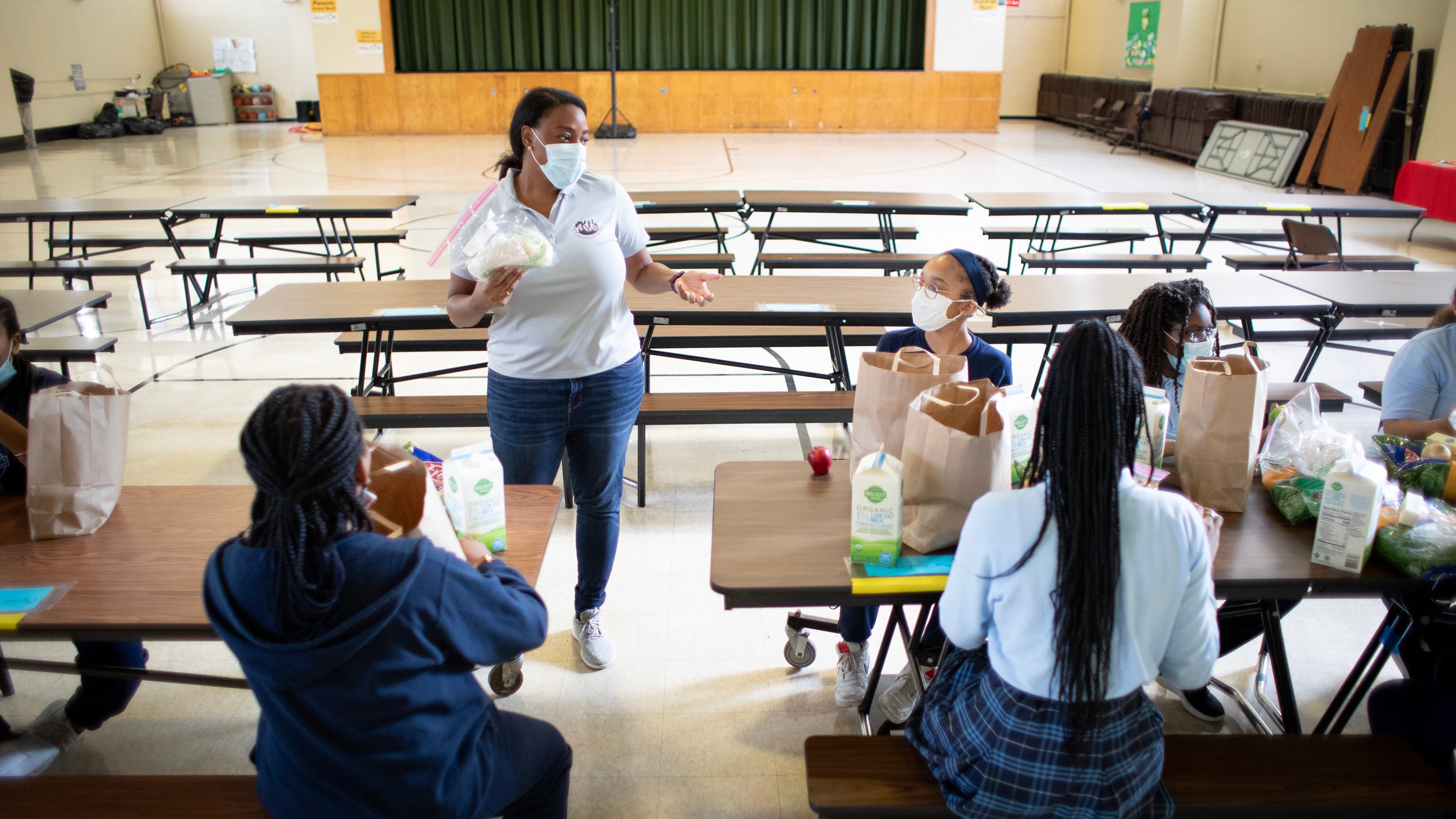
The Advanced Cooking Education 4-H After School Club
Dr. Tashara M. Leak, an associate professor in the Division of Nutritional Sciences at Cornell University and an associate dean at the College of Human Ecology in New York City, has dedicated years to developing a pioneering program in nutrition education for adolescents. Her initiative, the Advanced Cooking Education 4-H After School Club, targets seventh and eighth graders in Brooklyn and Manhattan schools where many students come from low-income households.
The 12-week program focuses on wellness, culinary skills, and exposure to careers in food and nutrition. It was funded by the U.S. Department of Agriculture with a 5-year, $990,000 grant. In January, Dr. Leak received a 2025 Presidential Early Career Award for Scientists and Engineers, the highest honor bestowed on early-career scientists and engineers by the federal government. However, in May, her program faced an unexpected halt due to a stop work order from the USDA, part of a broader trend of federal research grant terminations across the country.
The Vision Behind the Program
Dr. Leak created the ACE program to address the unique needs of “adultified” adolescents—those who take on significant household responsibilities, often due to economic hardship or family structure. These students are frequently exposed to adult-level issues and stress, which can impact their health and well-being. The program aims to provide them with tools to manage stress and develop a sense of purpose.
At the start of each session, the program includes a mindfulness component with meditation, stretching, and journaling informed by the CASEL Framework around social and emotional learning. This helps students center themselves and cope with the challenges they face.
Program Structure and Activities
The ACE program is designed to expose students to careers in food and nutrition, including food science, urban agriculture, and food photography. Culinary science is a core element, with students receiving grocery bags every other week to complete cooking labs at home. They learn about sensory evaluations, knife skills, and recipe adjustments, culminating in a public speaking competition that functions like a job interview.
The curriculum also incorporates cultural elements, with students preparing plant-based dishes from various cuisines, such as Korean and Caribbean foods. This approach emphasizes that healthy eating does not require abandoning one's cultural heritage.
Student Feedback and Impact
Students have responded positively to the program, particularly appreciating the mindfulness components and opportunities to try new foods. Many expressed surprise at discovering they enjoyed dishes they had never prepared before, such as black bean burgers. The public speaking competition also helped students build confidence and articulate their skills.
From a research perspective, the program aimed to assess its impact on students’ nutritional status using the Healthy Eating Index, which tracks 13 sub-components of dietary intake. Researchers also evaluated improvements in cooking skills, attitudes, self-efficacy, stress levels, and a sense of purpose.
Challenges and Future Plans
Receiving a stop work order from the USDA came as a shock to Dr. Leak, who had been supported by the agency for over a decade. She used reserve funds to finish the school year, ensuring students were unaware of the disruption. However, she now faces the challenge of securing alternate funding to continue the program in the future.
Dr. Leak is determined to fulfill her commitment to the schools and students involved. She acknowledges the importance of maintaining trust in communities that have often experienced broken promises. While the path forward is uncertain, she remains committed to finding a solution.
Conclusion
The Advanced Cooking Education 4-H After School Club represents a meaningful effort to support adolescents facing complex challenges. Through nutrition education, culinary skills, and career exploration, the program empowers students to take control of their health and future. Despite the recent setback, Dr. Leak’s dedication and the positive impact of the program underscore the critical need for continued investment in youth development initiatives.